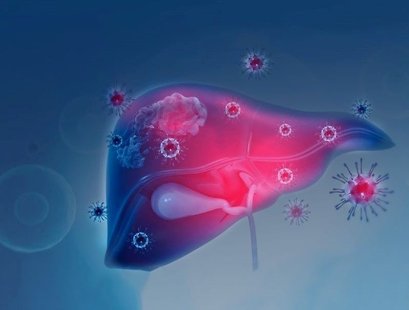Hepatitis Delta

Hepatitis delta virus (HDV) was discovered in 1977 by Rizzetto et al., it is the smallest human RNA virus with a circular, rod-like genome. HDV RNA encodes a protein called delta antigen, which is subsequently enclosed in an envelope embedded with hepatitis B surface antigen (HBsAg). HDV is a defective virus that requires the presence of the hepatitis B virus (HBV) to cause infection.
Clinical features: HDV infection can worsen symptoms of HBV infections and may even cause symptoms in asymptomatic HBV patients. HDV infection presents symptoms similar to those experienced with HBV:
• Yellowing of the skin and eyes (jaundice)
• Gastrointestinal (GI) problems such as nausea, vomiting, and abdominal pain
• Fatigue
• Loss of appetite
• Dark colored urine
• Joint pain
People with chronic hepatitis B, who later get hepatitis D, will usually develop chronic hepatitis D virus infection.
Diagnosis: HDV diagnoses are not widely available and there is no standardization for HDV RNA assays, which are used to monitor response to antiviral therapy. Diagnosis requires two tests: the hepatitis delta antibody test (total anti-HDV) and the hepatitis delta RNA (HDV RNA) test. If the first test is positive, it should be followed by HDV RNA testing (qualitative or quantitative) to confirm an active infection.
Treatment: Pegylated interferon alpha is the generally recommended treatment for hepatitis D virus infection. The treatment should last for at least 48 weeks, regardless of patient response.
Other types of HDV treatment are being tested. These include drugs that attack the virus or prevent it from attaching to the hepatitis B cells that it needs to survive.

